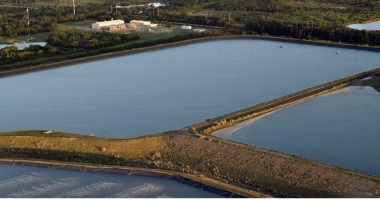Climate, Health and Equity Brief
Productivity Loss, Flash Floods, And Nashville Takes Action
July 11, 2019

Hot topic: Economics. Two new reports are predicting major economic impacts due to heat-related productivity loss resulting from climate change. New projections by the International Labour Organization (ILO) estimate that a 1.5°C rise in average global temperature will lead to a 2.2% drop in working hours globally by 2030, ultimately costing the global economy $2.4 trillion. And a new Moody’s Analytics report predicts trillions of dollars of losses by the end of the century, as everything from the spread of diseases to heat stress diminish worker productivity. The timing of these reports is poignant, with extreme heatwaves sweeping across Europe and India in recent weeks.
Natural disasters and extreme weather also continue to wreak havoc on economies in the U.S. and abroad. This week, flash floods in Washington D.C. overwhelmed the capital’s storm-water system, highlighting the massive risks— and costs—associated with outdated infrastructure in a warming world. However, some cities are taking proactive steps, such as Nashville, which has been actively relocating residents living in flood-prone areas. It’s an expensive process, but much less so than the cost of rebuilding after disaster strikes. Preemptive actions such as these will be increasingly critical as the impacts of climate change continue to wreak havoc around the world.
—Matt & Traci, GMMB
Politics & Economy
Rising global temperatures could lead to a loss of 80 million jobs and $2.4 trillion from the global economy by 2030, with agricultural workers being the most affected, according to projections by the ILO. (Reuters)
A new Moody’s Analytics report says limiting warming to 1.5°C will still inflict $54 trillion in losses on the global economy by the end of the century, resulting mainly from damages to human health, labor productivity, crop yields, and tourism. (The Washington Post)
Recent flash floods in Washington D.C. forced raw sewage into homes and businesses across the city, illuminating the urgent need and alarming expense of upgrading storm-water systems on a warming planet. (The New York Times)
Health
Record-breaking heat blasted across Europe this week, causing wildfires, forcing schools to close and putting the elderly at risk. (The New York Times)
The American Heart Association warns of the dangers of air pollution for pregnant mothers, which can include high blood pressure, gestational diabetes and possible increased risk of childhood ailments and even miscarriage. (U.S. News)
The UN has warned that the climate crisis is causing a major natural disaster each week on average—and much faster than expected—raising the alarm on the need for climate resilience and adaptation strategies. (The Guardian)
Equity
A new analysis has found that in the American northeast and mid-Atlantic, people of color are exposed to 66% more air pollution from vehicles than white residents due to proximity to sources of pollution, putting them at higher risk of developing lung and heart diseases, asthma, or dying prematurely. (The Guardian)
Air pollution speeds up how quickly our lungs age and increases our risk of chronic obstructive pulmonary disease (COPD), particularly for those in low-income households, a new study has found. (CNN)
Action
Citing public health concerns, Paris is instituting a policy that will take nearly three million vehicles off the city’s roads during weekdays in an effort to reduce air pollution. (The Hill)
Nashville is taking proactive action to protect residents from climate change by relocating them from flood plains. (The New York Times)
Upcoming Events
- September 4-6: The 2019 Planetary Health Annual Meeting
- September 12: Forests, Food & Land Day: Meeting the 30×30 Challenge
- September 23: UN Climate Summit 2019
- September 23-29: Climate Week NYC
- November 2: APHA Annual Meeting and Expo: “Creating the Healthiest Nation: For science. For action. For health.”November 11-22: Santiago Climate Change Conference (COP25)
“The economy is a wholly-owned subsidiary of the environment, not the reverse.”
-Herman E. Daly
Have feedback on this issue? Email us

)





